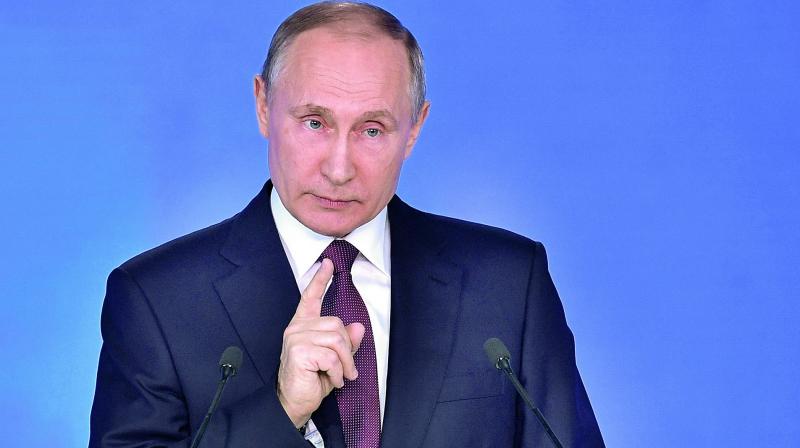Why ‘liberalism’ makes Russia’s Putin see red

Russian President Vladimir Putin chose the occasion of last week’s G-20 summit in Osaka to arraign the dominant Western value of “liberalism”, which has been the philosophical basis for the founding of the modern British state after the Glorious Revolution of 1688, and of the American and the French revolutions in the late 18th century leading to the acceptance of liberalism as the foundational principle of the State in these countries, and the subsequent spread of this idea well beyond these jurisdictions and its arrival in India along with British colonialism.
Liberalism set the tone for the compact between the citizen and the State in the modern world, which is best thought of as being guided by Montesquieu’s idea of “consent of the governed”. If the rolling back of feudal monarchies brought the “free man” — the very basis of liberal thought — on the stage of history, the free man found himself shackled by the deepening of the capitalism process by the early 20th century. This caused turbulence in Europe especially, leading to the founding of the Communist state under Lenin in Russia in 1917.
But that experiment folded up 70 years later. In the meantime, the folding up of the modern fascist state in Germany with the defeat of Hitler in 1945 left the idea of the capitalist state guided by liberal values as being the gold standard of universal political life.
It is this which Mr Putin has challenged so conspicuously. In Osaka he said liberalism was “obsolete”. At a post-summit press conference on Sunday, the Russian leader said liberalism was “eating itself”, although he did add “liberal ideas remain attractive as a whole”. This seemed a sop.
Since the fall of Communism in Moscow in the late 1980s, no international personality has challenged liberalism as the only civilised guiding principle. While Mr Putin offers no competing vision, he becomes the first political leader in an epoch to question liberalism as an idea.
Across Western Europe, fascistic, nativist, nationalist and reactionary parties have pushed the “traditional parties” — to quote the Russian leader — hard, and in the US Donald Trump actually triumphed. Mr Putin referred in Osaka only to the US and Europe. But he might have added Brexit in the UK. In the 20 leading countries whose leaders gathered in Osaka, very few now abide by liberalism. Jair Bolsonaro’s Brazil, Narendra Modi’s India, Xi Jinping’s China are outside the liberal sphere, though they follow some variety of capitalism.
Mr Putin doesn’t exactly run a democracy. But nor do the leaders of many prominent countries. So what he is saying is that it is not right for any of them to sermonise him.

